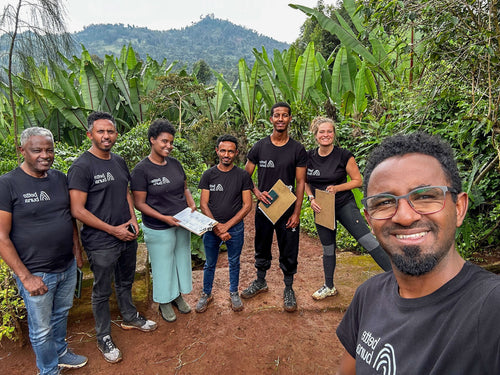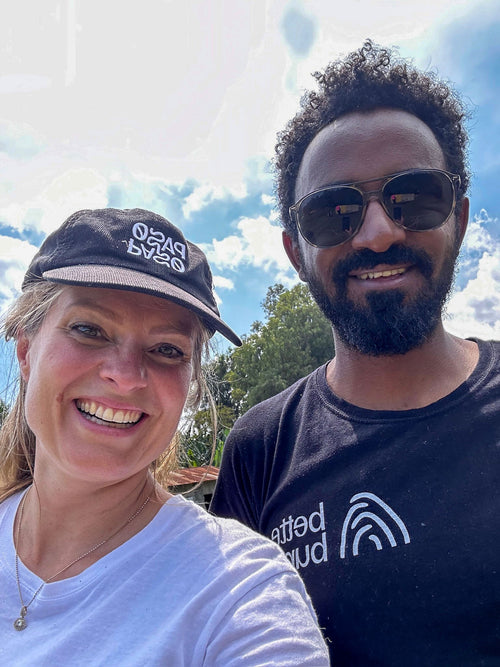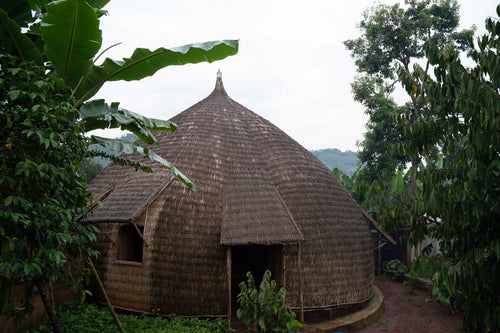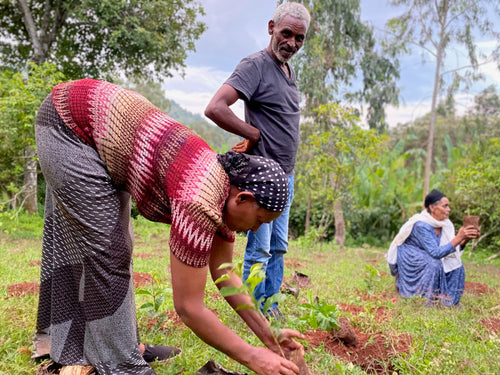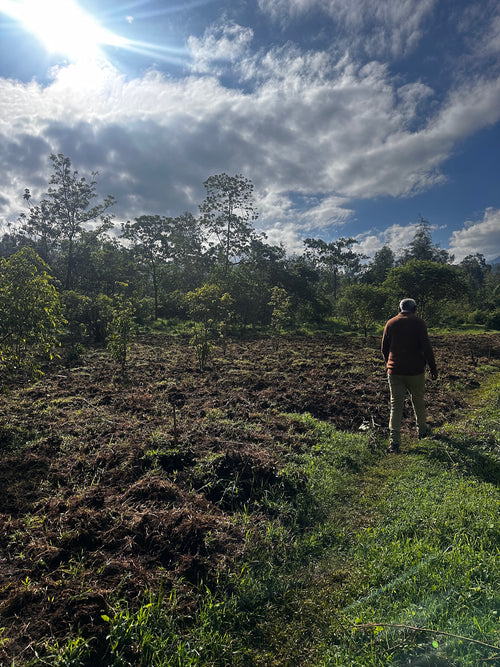We’re getting about 25 different coffees from our Ethiopian partners Bette Buna this year, so we’ve decided to name each lot after one of the people who worked on producing it, exporting it, or contributing to social work at Bette Buna.
This one is named for Mersha, Dawit (Ashu) Syoum's father and farm/nursery manager extraordinaire (pictured above, left). Known for his kindness and sense of humor, Mersha uses his position as Taferi Kela community leader to empower everyone around him. He manages the day-to-day of Bette Buna's Sidamo farm and coffee plant nursery, giving special attention to employees who need extra care or help. Once skeptical about the power of coffee to change communities, he now loves to teach and motivate as many people as he can in good coffee farming practices.
This exquisite 'Mersha' lot is redolent with sweet-tart notes of pluot, cloudberry jam, and gently acidic Darjeeling tea. We're loving it hot, but also as an iced coffee on warm days!
For a bit more about Bette Buna, check out our blog post here or read on below ...
Betta Buna was founded by partners Hester Westerveld-Syoum and Dawit Syoum when they inherited their grandfather’s tiny family farm in Taferi Kela, Sidamo. With a background in NGO and development work, they decided to grow and scale the farm as the foundation for a larger company with greater impact.
Having started in 2019, they have already grown considerably. They have expanded the Taferi Kela farm from 2 to 50 hectares and have spread to a second 50-hectare farm in Megadu, Guji. Both farms have tree nurseries where climate change-resistant varietals are grown to share with surrounding farmers. Similarly, they have facilities where they not only process their own lots but also educate other farmers in processing techniques, while their Coffee Campus programme provides training in roasting, brewing, and even exporting. They provide countless opportunities for their farming communities by not only teaching and motivating farmers but also hiring local workers at their nurseries and mills, including single mothers and disabled people who would struggle to find employment elsewhere. They also work hard to incorporate sustainable farming methods, rewild forests on their land, and protect local wildlife to promote ecosystem health for coming generations.
This lot was processed anaerobically to create a super intense, forest-fruity cup profile. The team fermented the depulped coffee along with extra pulp from another coffee lot in sealed barrels, each fitted with a lid with a one-way valve. There were no added yeasts or starters, but the added pulp gave the bacteria some extra sugar to feed on!
After fermentation, the team spread the parchment in thin layers on African raised beds and let the sun dry the parchment to the right moisture level for about 20-25 days, depending on the strength of the sun and outside temperatures. Once the correct moisture level was reached, the parchment was bagged, tagged, and stored for a minimum of 8 weeks to improve the complexity and intensity of the cup profile. After dry milling locally to remove the parchment, the team applied another round of hand sorting to remove any primary defects. After that, the bags of green coffee were loaded on a truck to take a 3-5 day drive to the main Bette Buna dry mill in Gelan, located close to Addis Ababa. Here the green beans underwent another round of cleaning, screening on size and density, and color sorting, and were bagged a final time, ready to be exported!
We're proud to support Bette Buna and plan to partner with them for many years to come.
Elevation: 2100 MASL
Varietal: Enat Buna, 74158, 74112
Cup score: 90
Price paid per kg: £15.29
Process: Dry Anaerobic Natural
